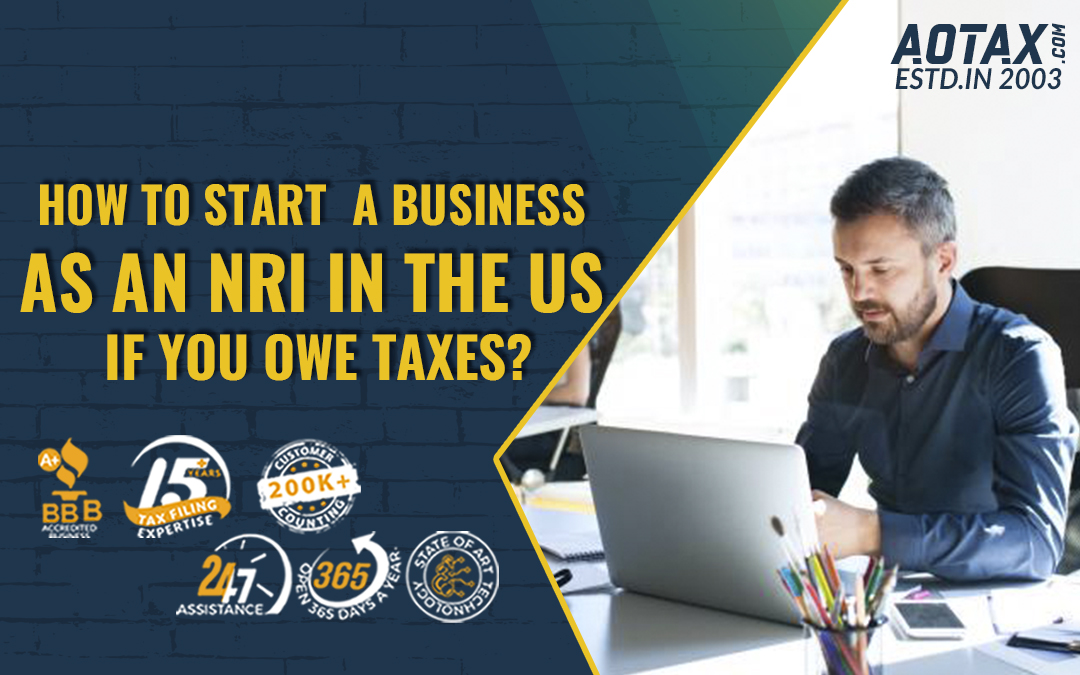
How to start a business as an NRI in the US if you owe taxes?
How to start a business as an NRI in the US if you owe taxes?
As an NRI, if you are planning to launch your own business but you owe taxes and are not sure about how to proceed then you might find yourself in a confusing situation. In this scenario, it depends if your situation would be affecting your ability to start or launch a business. Your tax debt may not prevent you from starting a business; however, it can affect your goodwill and even your ability in obtaining loans for your business.
Possibilities of business incorporation
Even if you owe taxes to the IRS, you would still be able to incorporate your own business. Generally, corporations and the LLC business structures would allow you to separate and also protect your assets. If you are planning to launch your own business, you must have a very clear distinction between the business and yourself as an individual. By the process of incorporating or forming an LLC, it is implied that you are eligible to run your business without any fear of your personal assets being seized due to your business debts.
If you consider the scenario from a tax standpoint, it is much easier to pay off or rather manage taxes if your expenses for business re kept separated from your personal expenses. Corporations and LLCs can deduct eligible expenses like salaries and supplies; however, it would become more complicated if your personal expenses and business expenses are mixed up. You must work very closely with a tax advisor or tax professional to help you in the proper set up of your company.
Financing of your business when you owe taxes
- When you apply for the financing of your business, your business loan application could be affected by your personal credit. Usually, financers would evaluate in detail your personal credit and financial history before granting you a business loan.
- If you have a high amount of tax debt or you have not paid your taxes then your credit score might decrease steeply.
- If there is a tax lien against you then it would remain on your credit report for a long time even when you have paid the tax.
4. If you think your tax debt can create an issue for the financing options available for your business, you can consider the below-mentioned financing options.
Short term loans – You can obtain a short term loan if your business has a sustainable cash flow. This kind of loan places greater emphasis on the revenue of the company rather than on your credit score.
Term loans – For term loans, you would need good personal credit. Moreover, these loans would give you a lump sum money which you would have to repay with a fixed interest rate.
Accounts Receivable Financing – If you are waiting on your unpaid invoices to pay your business expenses, this type of loan is the best option for you.
SBA Loans – SBA loans are highly sought as their lower interest rates are added up with longer repayment terms.
Resolve your unpaid taxes
If you owe back taxes to the IRS, then the IRS has the authority to collect the taxes by seizing your property through a tax levy. By a tax levy, the IRS is allowed to seize your bank account balances, your wages, real estate, automobiles, retirement accounts, and any other assets. However, you can still work and earn.
You will have to discuss your unpaid taxes with the IRS. If you have negotiated with the IRS and decided that you would be paying your debts using an installment agreement, then you would be able to start your own business. However, you must keep in mind that if you try to hide your assets from the IRS’s levy by using your business as a front then it is illegal.
Some other tax considerations
From the perspective of business structures, there are four types of business structures and each one would be having a different influence on business taxes.
a.Sole proprietorship – If you are setting up your business as a sole proprietorship, your business would not be separate from you as an individual from a legal perspective. By this, your business would not have to pay business income tax as you would have to report your self-employment income only.
b.LLC – LLC means Limited Liability Company and by this, your company would get its own identity and status different from your personal identity. You can receive more protection and financial benefits. Your LLC would not have to pay business income tax and you would only pay personal income tax.
c.S-Corp – It is also a business structure that is not liable for business income taxes and all the business earnings would pass through the owner.
d.C-Corporation – C-Corporations might be a publicly-traded company or a small company, this business structure requires you to pay business income taxes.
Conclusion
Hence, even if you owe taxes to the IRS it does not mean that you will not be able to set up a business of your own. You should not ignore your tax obligations, connect with experienced tax professionals for tax resolution services, and get ready to pursue your dreams of starting your own business.

Recent Comments